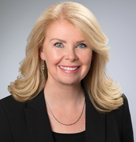Physician Thriving: Financial Wellbeing and Burnout – Where Do You Stand?
By Hilary McClafferty, MD, FAAP
Financial stress is a widely recognized element in physician burnout, although to those outside of medicine this may seem paradoxical. In early career physicians, burnout correlates with amount of student loan debt, highlighting the need for new approaches to financing medical education. (1) In addition to student debt, recognized drivers of financial stress in medicine include prolonged training time before employment, new equipment costs or practice buy-in, productivity-based reimbursement, and in some, substantial credit card debt after years of delayed gratification. Potent emotions can compound financial stress and impede effective problem solving. Shame, secrecy, confusion, embarrassment, and anxiety are some examples.
Financial wellbeing, like physical wellbeing, reflects the relationship you have developed with yourself over time and can be approached through the lens of ‘whole physician health,’ where all facets of lifestyle carry equal weight and have the potential to be addressed using a range of techniques. It is encouraging that a pattern of successful behavior change in the past can provide a blueprint for cultivation of greater financial wellbeing. For example, achievement of a weight loss or exercise goal may have required awareness, motivation, time-management, discipline and persistence to stay on track, strengths that can be harnessed to enhance financial wellbeing.
Similarly, parallels exist with obstacles encountered when implementing lifestyle changes. For example, procrastination, distraction, fear, denial, and lack of discipline can derail good intentions and slow one’s progress towards a goal – be it physical or financial. In both cases, the root cause of the obstructing behavior must be identified and explored. What is really happening on a day-to-day basis, in the moment of choice, that is moving the person away from their intended goal rather than toward it? Uncovering and correcting an old fear, habit, or misconception can increase sense of self-efficacy, decrease frustration, enhance inner locus of control, and help build positive momentum. And when positive behavior change is aligned with one’s core values, progress accelerates and becomes even more meaningful, especially when money is involved.
This approach provides an opportunity for mindfulness in action. Do your attitudes and actions related to money align with your inner value system? If not, why not? What is pushing you in the opposite direction? Is it a factor within your control? Are there financial steps you can take to better align with your values and decrease money stress this week? Today? Doing so has the potential to lower chronic stress and buffer against burnout over time. Why not consider making money the focus of a mindfulness practice for one day this week. Before each financial decision, pause for a moment, ground yourself with a breath and check in. Is the action moving you in a healthier direction? If not, why do it? What are the options within your control? Treat yourself with compassion and maintain the long view towards your health. Ask yourself, if not now, when?
Reference
- Mirza W, Mirza AM, Saleem MS, et al. Well-being Assessment of Medical Professionals in Progressive Levels of Training: Derived from the WHO-5 Well-being Index. Cureus. 2018;10(12):e3790.
 Hilary McClafferty, MD, FAAP, is board certified in pediatrics, pediatric emergency medicine, and integrative medicine. She writes and speaks nationally on physician wellbeing, resiliency, and whole physician wellness. She is a member of the International Coach Federation, certified physician coach, certified in Positive Psychology and Well-Being Coaching, and author of two books: Mind-Body Medicine in Clinical Practice and Integrative Pediatrics: Art, Science, and Clinical Application, and editor of three Special Editions on the use of integrative medicine in practice. She is Founding Director of the Pediatric Integrative Medicine in Residency program, University of Arizona, and Medical Director, Pediatric Emergency Medicine at Tucson Medical Center, Tucson, AZ. Email: mcclaffertyh@gmail.com Website: www.drmcclafferty.com Twitter: @drmcclafferty
Hilary McClafferty, MD, FAAP, is board certified in pediatrics, pediatric emergency medicine, and integrative medicine. She writes and speaks nationally on physician wellbeing, resiliency, and whole physician wellness. She is a member of the International Coach Federation, certified physician coach, certified in Positive Psychology and Well-Being Coaching, and author of two books: Mind-Body Medicine in Clinical Practice and Integrative Pediatrics: Art, Science, and Clinical Application, and editor of three Special Editions on the use of integrative medicine in practice. She is Founding Director of the Pediatric Integrative Medicine in Residency program, University of Arizona, and Medical Director, Pediatric Emergency Medicine at Tucson Medical Center, Tucson, AZ. Email: mcclaffertyh@gmail.com Website: www.drmcclafferty.com Twitter: @drmcclafferty






